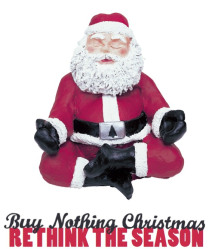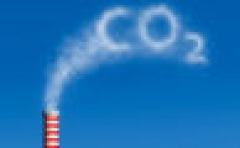
Logan and Albert Conservation Association

 Why has consumerism hiiacked the spirit of Christmas? Do we need to spend dollars to celebrate this special time for practicing Christians and even non Christians? Do the advertising campaigns, sales, cojoaling and promises to children prompt you to buy something to show you care?
Why has consumerism hiiacked the spirit of Christmas? Do we need to spend dollars to celebrate this special time for practicing Christians and even non Christians? Do the advertising campaigns, sales, cojoaling and promises to children prompt you to buy something to show you care?
Do retail products occupy too much space in our homes and hearts at Xmas?
Giving someone you love a truly unique present, and supporting a local and/or independent artist at the same time, kind of produces double levels of gift-giving warm fuzzies.
Your time is the most precious gift to give and if you are creative and make or grow something that gift is giving twice.
Consider instead purchasing gifts that give back ie adopt an animal in care, plant habitat for wildlife, support any number of conservation groups locally nationally or globally. Pay for a gift subscription to Wildlife magazine, digital or hardcopy. Give to charity to support those unfortunate who have little. Whatever you decide to buy, know more than its purchase price.
 Do not believe any of what you hear about the negative impact from the carbon price. Those using the word tax do so to misdirect your understanding of the situation. The government website explains quite clearly how it is using money paid by BIG POLLUTERS to offset any impact on low income and many higher income families. Scams and deceit unfortunately are part of today's society but ACCC has set up a help desk and hotline 1300 303 609. If you believe that false claims are being made use the ACCC HOTLINE or webforms found from this page.
Do not believe any of what you hear about the negative impact from the carbon price. Those using the word tax do so to misdirect your understanding of the situation. The government website explains quite clearly how it is using money paid by BIG POLLUTERS to offset any impact on low income and many higher income families. Scams and deceit unfortunately are part of today's society but ACCC has set up a help desk and hotline 1300 303 609. If you believe that false claims are being made use the ACCC HOTLINE or webforms found from this page.
The Australian Competition and Consumer Commission has developed a guide to help businesses understand their responsibilities when making claims about the impact of a carbon price. It focuses on prohibitions against misleading, deceptive or false claims under the Australian Consumer Law.
http://www.cleanenergyfuture.gov.au/helping-households/
1 Million Women is a campaign of daughters, mothers, sisters and grandmothers all committed to protecting our climate, our communities and our future, leading change for the better. Their goal is to inspire 1 million Australian women to take practical action on climate change by cutting 1 million tonnes of carbon dioxide (CO2), the main greenhouse pollutant causing global warming. Every woman who joins has a personal goal to cut 1 tonne of CO2 from their daily lives within a year of joining the campaign.
Click on the image to go to 1 Million Women website and learn t over 50 different ways to cut CO2 pollution from household, food, transport, flights, shopping.
Citizens and government are working together to reduce our emissions to have a cleaner world.
We could be better off we stopped subsidising use of fossil fuels. Our taxes currently provide enormous subsidies to the coal industry and we don't yet count the cost of health issues arising out of coal and coal power generation. In terms of questionable costs to consumers, each taxpayer currently pays an average of $180 per year in the form of diesel fuel subsidies for the mining industry - in essence, each of us handing over an annual payment of $180 straight into the capacious pockets of the likes of Gina Rienhart and Clive Palmer. Consumers might prefer to see this money used in a better way.
 All too often we citizens and businesses continue to follow patterns of behaviour or ways of doing things as we have done in the past. Stopping to reflect is not a regular occurence for most of us - ie until something makes us sit up and look at what has happened because of what we have been doing.
All too often we citizens and businesses continue to follow patterns of behaviour or ways of doing things as we have done in the past. Stopping to reflect is not a regular occurence for most of us - ie until something makes us sit up and look at what has happened because of what we have been doing.
Could our vast supplies of Australian coal be used other than for running power stations? The Science Show is reviewing the options and wants your input on the possibilities. If in 25 years we can no longer burn coal what do you think we could do with it? Have your say on the Science Show's message board.
The ABCs Science Show has a transcript and audio download of the program Alternative uses of coal. They are available here.
An extract follows
Guy Pearse: The main implication has been that coal has been seen to be too big to fail. So on the biggest environmental issue of our time and the biggest contributing factor (certainly in this country) to it, we've just assumed that clean coal will work because it has to work.
Peter Mares: That's the point, isn't it; coal is too big to fail.
Guy Pearse: We think. But it's not.